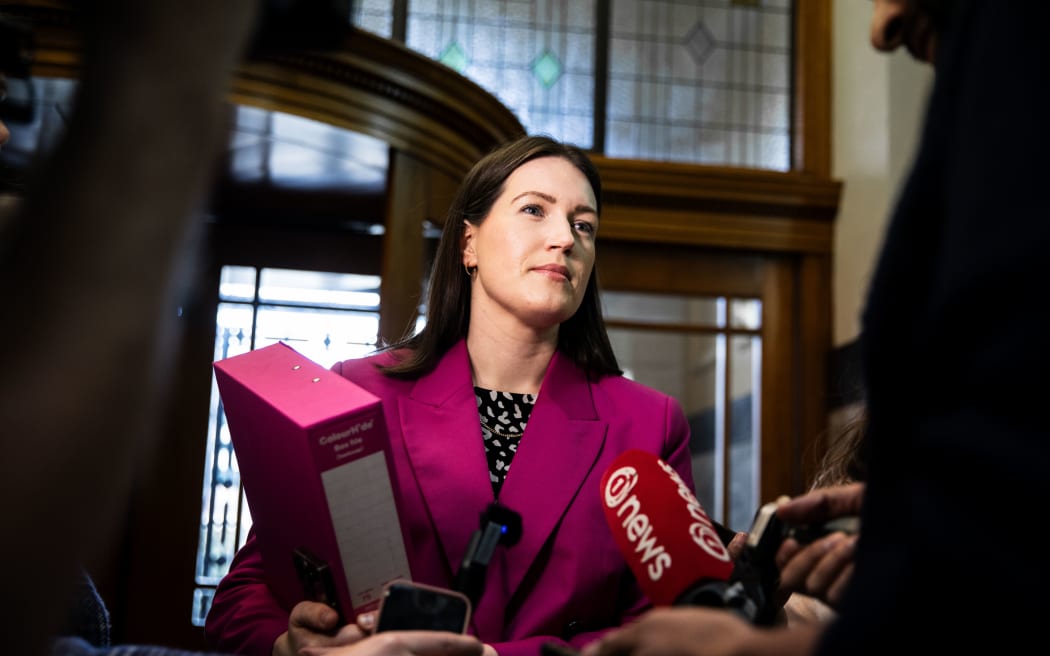
Workplace Relations and Safety Minister Brooke van Velden claims the changes would reduce the burden on employers when new employees start in a role. Photo: RNZ / Samuel Rillstone
The coalition government is scrapping the 30-day rule that automatically signs an employee up to the collective agreement when they sign on to a new job.
It is part of a suite of changes to employment laws being progressed by Workplace Relations and Safety Minister Brooke van Velden.
Van Velden said the changes would support freedom of choice and reduce the burden on employers when new employees start in a role.
"Currently, if a collective agreement is in place the employee's individual agreement must reflect the terms of the collective agreement and that applies for 30 days regardless of whether an employee chooses to join a union or not.
"Not only is the status quo convoluted and confusing, the process adds another administrative cost on top of many others, and those costs are dragging down workplace productivity."
The minister said removing the 30-day rule meant employees and employers would be free to agree on a wider range of employment terms, including those that differ from the collective employment agreement for the first month of someone's job.
"If a new employee chooses to negotiate the terms and conditions that suit their personal preferences or situation, they should have that choice realised from day one of employment."
She added a further benefit to the change would be that 90-day trials, that have been reinstated under the coalition, could begin at the start of someone's job, if the employee chose an individual employment agreement.
"Expanding the availability of 90-day trials was an ACT-National coalition commitment and supports workers that may struggle to gain employment and also give employers greater confidence around hiring."
The government is also making changes to the way employers communicate and report back on union membership for new employees.
Employers will no longer have to use the 'active choice form', created by the previous Labour government, and unions will no longer have the ability to provide information about the role and functions of the unions, that the employer must pass on to the employee.
Van Velden said employers would still need to communicate that the employee may join a union that is a party to the collective employment agreement, how to contact the union and that if the employee joins the union, the collective employment agreement will bind the employee.
The changes will be included in the Employment Relations Amendment Bill that will be introduced this year and is expected to be passed by the end of 2025.
Sign up for Ngā Pitopito Kōrero, a daily newsletter curated by our editors and delivered straight to your inbox every weekday.




